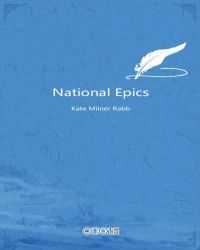THE JERUSALEM DELIVERED.
您可以在百度里搜索“National Epics 艾草文学(www.321553.xyz)”查找最新章节!
THE JERUSALEM DELIVERED.
The Gerusalemme Liberata, or Jerusalem Delivered, was written by Torquato Tasso, who was born at Sorrento, March 11, 1544. He was educated at Naples, Urbino, Rome, Venice, Padua, and Bologna. In 1572 he attached himself to the court of Ferrara, which he had visited in 1565 in the suite of the Cardinal d'Este, and by whose duke he had been treated with great consideration. Here his pastoral drama "Aminta" was written and performed, and here he began to write his epic. The duke, angry because of Tasso's affection for his sister Eleanora, and fearful lest the poet should dedicate his poem to the Medicis, whom he visited in 1575, and into whose service he was asked to enter, kept him under strict surveillance, and pretended to regard him as insane. Feigning sympathy and a desire to restore his mind, he had the unfortunate poet confined in a mad-house. Tasso escaped several times, but each time returned in the hope of a reconciliation with the duke. During his confinement his poem was published without his permission: first in 1580, a very imperfect version; in 1581, a genuine one. This at once brought him great fame; but while its publishers made a fortune, Tasso received nothing. Neither did the duke relent, although powerful influences were brought to bear on him. Tasso was not released until 1586, and then, broken in health, he passed the rest of his life in Rome and Naples, living on charity, though treated with great honor. He died in Rome, April 25, 1595, just before he was to have been crowned at the capitol.
The Jerusalem Delivered has for its subject the first Crusade, and the events recorded in its twenty cantos comprise the happenings in the camp of the Crusaders during forty days of the campaign of 1099. Its metre is the octava rima, the eight lined rhymed stanza.
Tasso was not so successful in the delineation of character and in the description of actions as in the interpretation of feeling, being by nature a lyric rather than an epic poet. But his happy choice of subject,—for the Crusades were still fresh in the memory of the people, and chivalry was a thing of the present—his zeal for the Christian cause, his impassioned delineations of love, and his exquisitely poetical treatment of his whole theme, rendered his epic irresistible. National Epics
